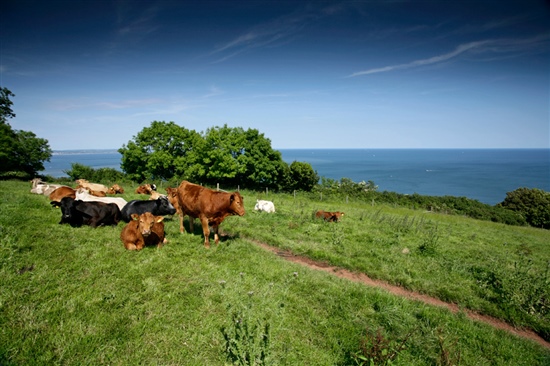Posted on behalf of Senior Policy Officer Tom Lancaster
We’re often told by politicians at Westminster that ‘Brexit means Brexit’; but what does Brexit actually mean, and what does it mean for farming, land use and nature?

Cattle grazing in cirl bunting habitat (RSPB-images.com)
The outcome of the referendum result has created a shift so massive that few, if any, are yet able to comprehend what it…